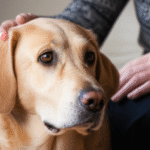The Gut Connection: Why It Matters for Your Canine Companion
The gastrointestinal (GI) tract in dogs is far more than just a digestive system; it’s a foundational pillar of their overall health and well-being. Often referred to as the “second brain,” the gut plays a critical role in functions ranging from nutrient absorption to immune defense and even mood regulation. Understanding this vital connection is key to ensuring your canine companion lives a vibrant, healthy life.
The Immune System’s Stronghold
A staggering 70% of a dog’s immune system resides within their gut. The gut acts as a primary barrier against pathogens, filtering out harmful bacteria while allowing beneficial nutrients to pass into the bloodstream [Source: American Kennel Club]. A healthy gut microbiome—the diverse community of microorganisms living in the digestive tract—is essential for a robust immune response. When this delicate balance is disrupted, it can lead to chronic inflammation, increased susceptibility to infections, allergies, and even autoimmune diseases [Source: National Institutes of Health]. Maintaining gut integrity through proper diet and potentially probiotic supplementation can significantly bolster your dog’s natural defenses.
The Gut-Brain Axis: Mood and Behavior
Emerging research highlights the intricate connection between the gut and the brain, known as the gut-brain axis. The gut produces neurotransmitters, including a significant amount of serotonin, which is crucial for mood regulation. An imbalance in gut flora can affect these chemical messengers, potentially influencing your dog’s behavior, anxiety levels, and overall disposition [Source: Frontiers in Veterinary Science]. Dogs with digestive issues may exhibit signs of stress, irritability, or even aggression, underscoring the profound link between their gut health and mental well-being. A balanced gut environment can contribute to a calmer, happier canine.
Fueling Vitality and Nutrient Absorption
Beyond immunity and mood, a healthy gut is paramount for proper digestion and nutrient absorption. The gut efficiently breaks down food, extracting essential vitamins, minerals, and energy that power every bodily function. When the gut is compromised, even a high-quality diet may not provide adequate nutrition due to poor absorption. This can lead to issues such as weight loss, dull coat, low energy, and overall lack of vitality. Ensuring optimal gut health means your dog is fully utilizing the nutrients from their food, translating into sustained energy, a glossy coat, and vibrant health. For a deeper dive into nurturing your dog’s digestive system, explore our ultimate guide to gut wellness.
Decoding Doggy Digestion: Signs of an Unhappy Gut
When your canine companion isn’t feeling their best, their digestive system often sends clear signals. Recognizing these signs early can help you address potential issues and ensure your dog’s comfort and well-being. A balanced gut is crucial for overall health, and an imbalance can manifest in various ways, from common tummy troubles to more subtle indicators.
One of the most apparent signs of digestive distress is changes in stool. This can include diarrhea, which might be watery, loose, or contain mucus or blood, suggesting inflammation or infection [Source: American Kennel Club]. Conversely, constipation, characterized by straining, hard stools, or infrequent bowel movements, also points to an unhappy gut [Source: PetMD].
Vomiting and regurgitation are also key indicators. While occasional vomiting might not be a major concern, frequent or persistent vomiting, especially accompanied by other symptoms, can signal underlying digestive problems, food sensitivities, or more serious conditions [Source: VCA Hospitals]. Regurgitation, the expulsion of undigested food shortly after eating, is different from vomiting and often indicates issues with the esophagus or rapid eating [Source: Cornell University College of Veterinary Medicine].
Beyond the obvious, look for abdominal discomfort or bloating. Your dog might show signs of pain when their belly is touched, or their abdomen may appear distended. This can be a symptom of gas, inflammation, or even a more critical condition like Gastric Dilatation-Volvulus (GDV), also known as bloat, which is a life-threatening emergency [Source: American College of Veterinary Surgeons].
Lack of appetite or excessive gas can also indicate an unhappy gut. If your dog suddenly loses interest in food or has chronic, foul-smelling flatulence, it could be a sign of digestive imbalance, malabsorption, or food intolerance [Source: American Kennel Club].
Finally, less obvious signs like poor coat quality, skin issues, and even behavioral changes can be linked to gut health. A dull coat, excessive shedding, dry skin, or recurring skin infections may suggest that the gut isn’t properly absorbing nutrients [Source: PetMD]. Some research also suggests a connection between gut health and a dog’s mood and behavior, with imbalances potentially contributing to anxiety or lethargy [Source: VCA Hospitals]. For a deeper dive into improving your dog’s digestive wellness, explore our comprehensive guide on Unlock Your Dog’s Health: The Ultimate Guide to Gut Wellness.
Nature’s Rx: Dietary Solutions for a Thriving Tummy
A dog’s diet is paramount for a healthy gut. Choosing the right food and incorporating beneficial supplements can significantly impact your dog’s digestive wellness.
High-Quality, Digestible Diet
The foundation is a high-quality, easily digestible diet with wholesome ingredients, avoiding excessive fillers. Select foods appropriate for your dog’s age, breed, and activity level. For sensitive stomachs, limited-ingredient diets can be beneficial [Source: VCA Hospitals]. Some owners explore raw or fresh food diets, requiring careful preparation for nutritional completeness [Source: Dog’s Care Life].
Probiotics and Prebiotics
Probiotics are live, beneficial bacteria that balance the gut microbiome, often disrupted by stress or antibiotics. Prebiotics are non-digestible ingredients stimulating beneficial bacteria growth. Reputable veterinary sources recommend certain probiotic strains for various issues [Source: American Kennel Club]. Always discuss supplementation with your vet.
The Role of Fiber and Hydration
Adequate fiber, from sources like pumpkin or sweet potato, supports gut motility and feeds beneficial bacteria. Crucially, ample fresh water is essential for digestion, nutrient absorption, and healthy bowel movements. Ensure your dog always has access to clean water.
Beyond the Bowl: Lifestyle Hacks for Optimal Gut Health
While diet plays a significant role in your dog’s gut health, non-dietary factors are equally crucial for fostering a thriving canine microbiome. A holistic approach that considers a dog’s entire lifestyle can lead to remarkable improvements in digestive well-being and overall vitality.
The Power of Regular Exercise
Physical activity is not just about keeping your dog fit; it profoundly impacts their internal systems, including the gut. Regular exercise promotes healthy circulation, which is vital for nutrient absorption and waste elimination. It also helps regulate gut motility, preventing issues like constipation or sluggish digestion. Engage your dog in daily walks, runs, or interactive play to keep their digestive system moving smoothly. For ideas on engaging activities, explore Fun Games to Play with Your Dog.
Stress Reduction Techniques
A dog’s emotional state has a direct link to their gut health through the gut-brain axis. Chronic stress can negatively alter the gut microbiome, leading to inflammation and digestive upset. Implementing stress reduction techniques is key to a calm gut. This can include maintaining a consistent routine, providing a safe and comfortable environment, offering plenty of positive reinforcement, and addressing sources of anxiety. Understanding Recognizing the Signs of Anxiety in Dogs can help you identify and mitigate stressors effectively. Creating a serene home environment and ensuring sufficient mental stimulation can also contribute to a less stressed and healthier gut.
Environmental Considerations
Your dog’s immediate environment also influences their gut health. Exposure to toxins, allergens, and even the cleanliness of their living space can impact their digestive system. Ensure your home is free of harmful chemicals that your dog might ingest or absorb. Provide access to fresh, clean water at all times, and keep their eating and sleeping areas clean. Allowing your dog safe exposure to diverse natural environments, such as parks or trails, can also introduce beneficial microbes that contribute to a more robust and diverse gut microbiome. A comprehensive approach to How to Care for a Dog Daily often includes these environmental aspects.
Partnering with Your Vet: When Professional Guidance is Key
While home care is important, professional veterinary intervention is crucial for serious gut issues. Recognizing when to seek expert guidance can prevent escalation of health problems.
When to Seek Immediate Care
If your dog shows persistent vomiting or diarrhea (over 24-48 hours), severe abdominal pain, lethargy, significant appetite loss, or blood in stool/vomit, contact your vet immediately. These symptoms can indicate serious conditions like parasitic infections, pancreatitis, or foreign body obstruction [Source: Merck Vet Manual].
Chronic Issues and Specialized Needs
For recurring problems like chronic diarrhea, intermittent vomiting, unexplained weight loss, or ongoing gas, a vet consultation is vital. Your vet can perform diagnostic tests (fecal exams, blood work, imaging) to identify the root cause [Source: PetMD]. They can also recommend prescription diets, specific probiotic strains, or medications for conditions like inflammatory bowel disease (IBD) or severe food allergies.
Preventative Care
Regular vet check-ups are key for preventative gut health. Your vet can monitor overall well-being, discuss dietary choices, and catch potential issues early. Early detection and intervention are crucial for successful outcomes.
Sources
- American College of Veterinary Surgeons – Gastric Dilatation-Volvulus (GDV)
- American Kennel Club – Dog Diarrhea: Causes & Treatment
- American Kennel Club – Dog Gut Health
- American Kennel Club – Probiotics for Dogs
- American Kennel Club – Why Does My Dog Have Gas?
- Cornell University College of Veterinary Medicine – Regurgitation in Dogs
- Frontiers in Veterinary Science – The Gut Microbiome in Dog Health and Disease: A Review
- Merck Vet Manual – General Principles of Gastrointestinal Disorders in Dogs and Cats
- National Institutes of Health – Pathogenic Escherichia coli: An Overview
- PetMD – Constipation in Dogs
- PetMD – Poor Coat Quality in Dogs
- PetMD – What To Do When Your Dog Has An Upset Stomach
- VCA Hospitals – Nutritional Management of Gastrointestinal Disease in Dogs
- VCA Hospitals – The Gut-Brain Axis in Pets
- VCA Hospitals – Vomiting in Dogs


